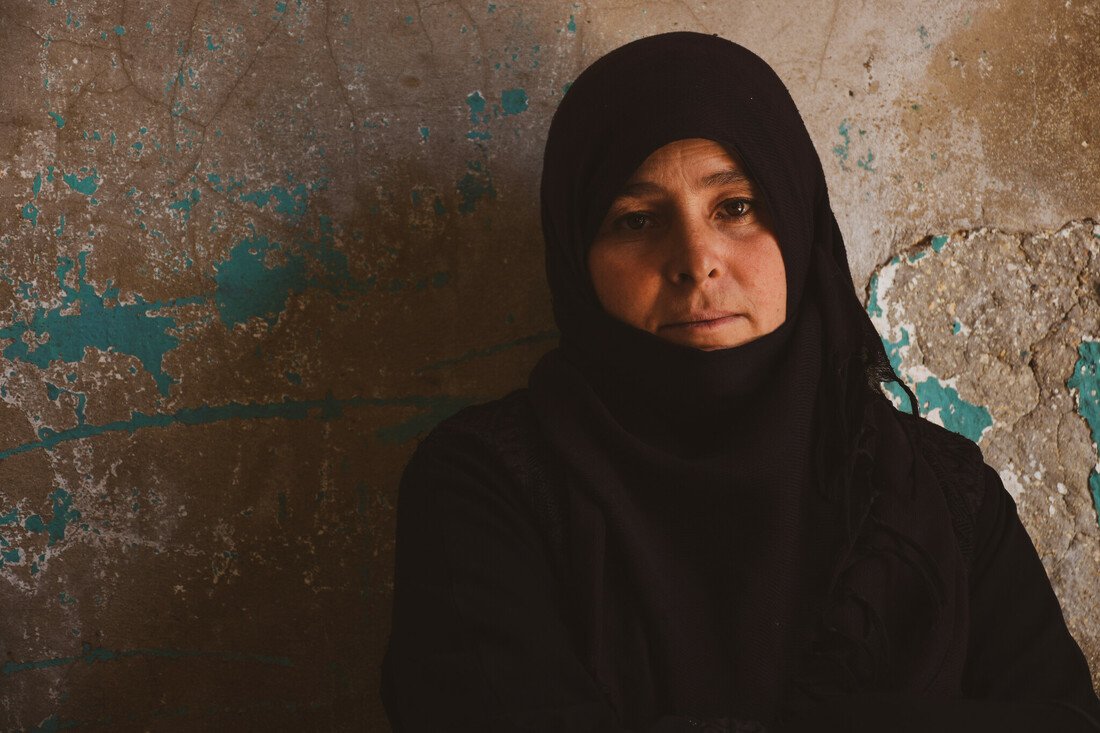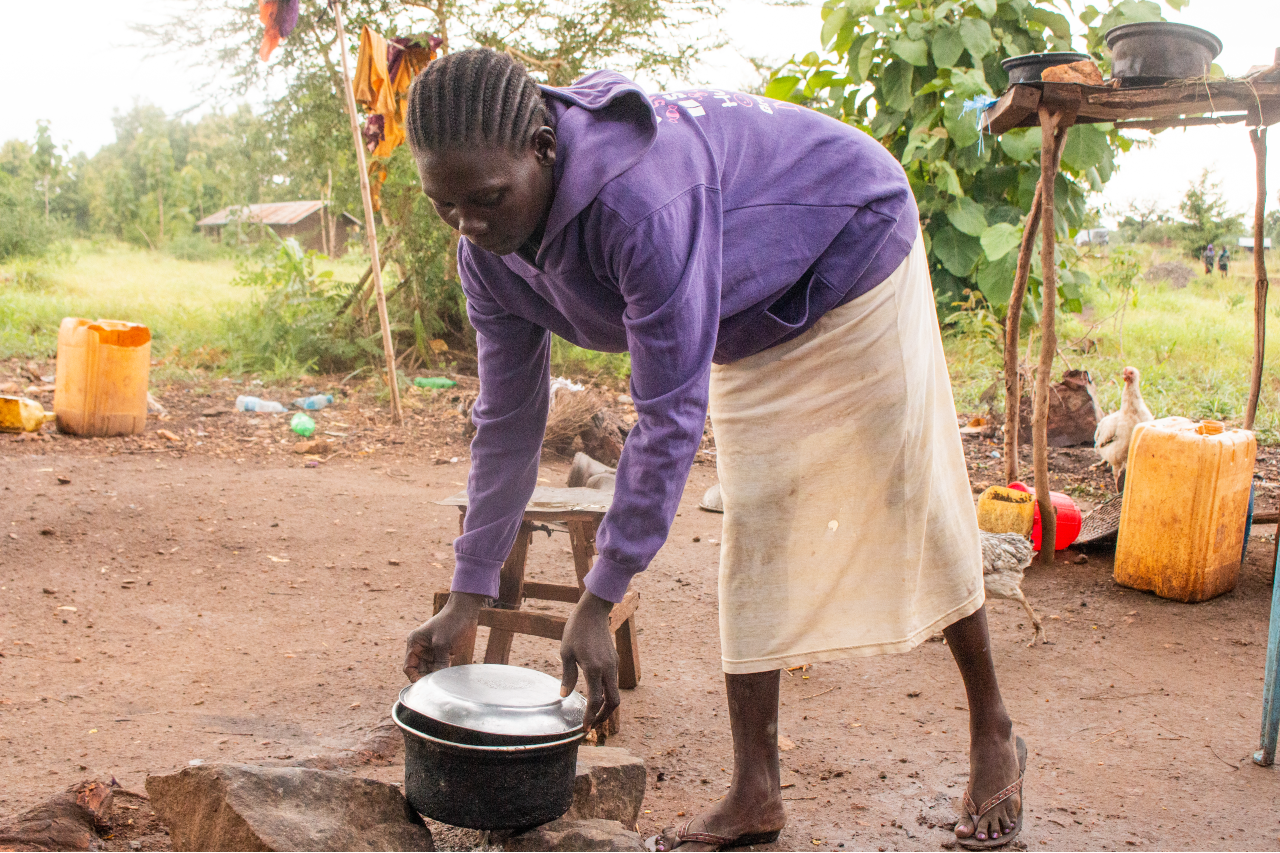The effects of conflict, COVID-19, and climate change have intensified the global hunger crisis. Here are some of the world's hunger hotspots and the families experiencing extreme hunger.
"Most of the times, when we have little to nothing to eat, I struggle to get my children to sleep at night," says Aishah Sadaah, a mother of four from Yemen who has been on the run for three years, displaced by conflict. "They ask for food and I try to distract them, telling them stories until they’re asleep, then I look at them and pray for a better life until I get stolen by sleep.”
The COVID-19 pandemic changed everything – including what and how we eat. Sadaah's situation is an all too common example of what many parts of the world are experiencing because of the global food crisis. In the year and a half since the pandemic began, ongoing conflict, combined with economic disruptions created by the pandemic and the escalating impacts of climate change, have intensified food insecurity in the world’s hunger hotspots. The three lethal “Cs of hunger”—conflict, COVID-related inequality, and climate change—have contributed to 155 million people going hungry this year. Nearly two out of every three of these people are going hungry primarily because their country is in war or conflict.
We need to take drastic action now to stop hunger from spiraling even further. This World Food Day, learn from the stories of five women in hunger hotspots around the world and how people pushed to extremes in these countries are surviving, what Oxfam is doing to help them, and how you can join the fight against hunger.
Syria: Conflict, COVID-19, + Climate Change
No country has been affected more by hunger in the last year than Syria. Nearly two out of three people—12.4 million people—face acute hunger. This 88 percent increase from last year stems from COVID-19-related economic fallout on top of the effects of 10 years of conflict.

An Oxfam study found that women-headed households have been hit the hardest, reporting an extreme decline in their food consumption. Aisha Ahmad Moussa, a farmworker in rural Aleppo, is one such woman. Moussa, a widow, is struggling to feed her eight children on her income, which is dwindling due to low rainfall.
Before COVID-19, Moussa, 34, says her family was doing relatively well. The farm work was difficult, but she did not mind hard labor if it meant her children were taken care of. In those days, she could afford to buy whatever they wanted to eat and was able to daily cook two to three meals of nutritious food for her growing children.
The pandemic changed everything. During curfew, she had to stop working. They lived off handouts from neighbors. Now she says the prices for food are so high that it’s difficult to find anything to cook. A typical meal is tomato paste sandwiches. They are down to one meal a day, if that.
“There is no quality food to feed my children,” she reports. “Their bodies are weak and skinny…. My children sometimes get dizzy because of the lack of nutrition and can't even concentrate on one thing,” she says.
Oxfam has assisted hundreds of families in the Aleppo governorate by providing them with three batches of unconditional cash aid. We're targeting the most vulnerable families, focusing on women who are heading their households to help them purchase items for their basic needs and improve their diets.
West African Sahel: Conflict
The region encompassing Burkina Faso, Chad, Mali, Mauritania, Niger, Nigeria, and Senegal has seen a 67 percent increase in hunger since last year. Continued violence has forced 5.3 million people to flee their homes. Insecurity has cut off farmers from their agriculture. Last year, along with the economic impact of COVID-19, the climate crisis disrupted the agricultural season, limiting stocks and people’s livelihoods.
Zoré Fatimata, 29, is from Raogo—a village in Burkina Faso—where she lived with her family of 19, including her mother-in-law, husband, co-wife, and their children. After enduring regular attacks on their village from armed groups, they had to seek refuge in the city.
Displaced and with their livelihoods disrupted, they earned money cleaning houses and doing laundry. When the pandemic started, they were told to stay home. Not only did that cut off their income, but their ability to purchase food.
Fatimata's family depends on food distributions to eat. She explains that they receive bags of millet or rice, but that food has to be carefully rationed to last until the next distribution.
“Because there's no food, you have to ration and eat slowly; you eat in the morning,” she says. “When we were in our village, we used to prepare a dish and a half of millet or rice per day. Here, it has become half a dish.” While the distributions are meeting an immediate need, Fatimata says she would prefer cash, so they can buy what they need.
In Burkina Faso, Oxfam has helped more than 97,655 people through cash transfers in collaboration with its partners Alliance Technique d'Aide au Développement and Association pour la Gestion de l'Environnement et le Développement. Fatimata’s family has used the cash transfers to purchase food.
South Sudan: COVID-19, Conflict, + Climate Change
This year, as South Sudan celebrates 10 years of independence, the country is also experiencing one of the worst food crises in the world. Although the peace agreement is holding, escalating violence between armed groups has heightened insecurity and displaced 4.3 million South Sudanese. The conflict has disrupted livelihoods, particularly those who work in agriculture.
COVID-19 added to food insecurity, interrupting the flow of goods as lockdowns led to unemployment—especially for informal workers, the majority of whom are women. On top of this, unusual flooding during 2020 affected an estimated 856,000 people, causing displacement and crop loss.

Jookdan Simon is one of the 7.2 million South Sudanese struggling to find enough food each day. The thirty-eight-year old mother of five has resorted to a trick to soothe her children when they cry from hunger. She sets an empty saucepan with a cover on the fireless stove and pretends to cook until the children fall asleep. By the time they wake up, they are ready for their only meal of the day, usually consisting of sorghum, Belila—corn boiled with oil and salt—and beans.
The violence in Pibor has displaced her family, making them vulnerable to hunger and disease. The ongoing violence, combined with the COVID-19 pandemic and extreme climate events such as flooding have had devastating effects.
Simon’s family is receiving unconditional cash transfers from Oxfam, which are distributed twice a year. They are part of Oxfam’s aim to reach 102,000 people in the hunger hotspots of Akobo and Pibor with water and resources for sanitation and hygiene, food security, and safety.
Venezuela: COVID-19

Clavel Lopez,* 62, lives in a border municipality of Venezuela. Getting food to eat is a daily struggle. Heavy rains plague the area, so people like Clavel, who survives off the food grown in her small plantation, face further food insecurity.
As a pensioner, Lopez receives a monthly income and rations. Since the pandemic began, she says the rations have been cut down to a packet of flour or a kilo of rice. The pandemic has limited the availability of food for purchase, particularly for those with no access to cash. Lopez says she has spent whole days searching for stores that accept payment by debit cards.
“There are times that after all that trip we return with nothing, either because there is no payment system with debit cards or because there is no light, " she says.
Because of the economic instability in Venezuela, Lopez’s husband migrated to Colombia. Now she cares for her 11-year-old grandson alone. They have been able to get some relief through an Oxfam-supported community canteen project, which provides them with a daily plate of hot food. We are also providing protection and prevention materials for COVID-19.
*name changed to protect identity
What can we do to help people experiencing hunger?
Since the pandemic began, Oxfam has reached nearly 15 million of the world’s most vulnerable people with food, cash assistance and clean water, as well as through projects that support farmers. We work with more than 694 partners across 68 countries.
We can't let people face this hunger crisis alone. We must tackle the intersecting crises of conflict, COVID-19, and climate change, and address the long-term, systemic inequality that is both fueling and worsening this crisis. We cannot solve hunger without addressing inequality and acknowledging that historically marginalized communities suffer the worst effects. That’s why in addition to humanitarian response, Oxfam is working to advocate for:
- Billionaires to pay their fair share of taxes to support stronger communities.
- Inclusive and sustainable ways to address conflict.
- A People’s Vaccine that is accessible to everyone, everywhere, so we can end the pandemic.
- Rich polluting nations to cut emissions and fund adaptation to combat the climate crisis.
